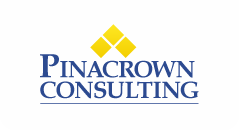If you’re moving to the UK to start a new life – and perhaps a new business – there are certain things you need to know to make sure you comply with your tax obligations.
There are other things you should know about the UK tax system so you can live your life and lead your business in a tax efficient way.
In this blog, we cover some of the essentials of pre-immigration tax planning.
Overview of the UK tax system
HMRC is responsible for administering and collecting taxes in the UK, including those such as income, inheritance and capital gains taxes (CGT).
Broadly speaking, the tax system is the same across the UK, although there can be some differences between the four individual nations.
For instance, there are four brackets for income tax in Scotland, but three in England, Wales and Northern Ireland.
Income tax, National Insurance contributions and other social security is typically paid through an employee’s pa on a monthly basis. This system is called ‘pay as you earn’ or PAYE.
That means most individuals are not required to file a tax return, although the more complicated nature of your personal finances as a foreign national moving to the UK increases the likelihood that you will have to do so.
The income tax year in the UK runs from 6 April to 5 April in the following year. Paper returns have to be filed by 31 October but those filing electronically have more time, until 31 January.
Residence and domicile status
Your liability to UK tax depends on several factors, particularly your residence and domicile status.
UK residents are individuals who have spent 183 or more days in the UK during the past tax year, have a home only in the UK or have worked full-time in the UK over the last 365 days.
Your domicile is what is considered under common law as your permanent residence. This is usually the country you originate from, but you can change it to the UK as your ‘deemed domicile’ if you move to the country for good.
Your status will be determined by a statutory residence test when you arrive in the UK and will have an impact on your tax liability, so it’s essential to determine your residence position in advance, which Pinacrown Consulting can help you with.
In terms of tax liability, someone who is resident and domiciled in the UK will be taxed on an ‘arising basis’, meaning that all their worldwide income and gains will be taxable in the UK, even if they have already been taxed in another country.
Non-domiciled UK residents, on the other hand, can choose between this and the remittance basis, which excludes their foreign income, dividends and gains from the scope of UK taxation as long as the income is less than £2,000 and not brought (remitted) to the UK.
This has its obvious advantages, but claiming the remittance basis will mean giving up any entitlement to the tax-free personal allowance and the annual exemption for CGT, so looking over your options with an adviser would be beneficial.
If you’re coming to the UK for only a short while, then you’ll only pay tax on your UK income but might face some extra charges, including an additional stamp duty land tax surcharge on residential properties, something that we’ve looked at in greater detail in a previous blog.
Starting a business
If you’re thinking about starting a business once you arrive in the UK, there are some tax issues that you’ll want to consider in advance to make it as tax efficient as possible.
First is the question of whether you will act as a sole trader or through a limited company.
As a sole trader, you will be liable for all finances relating to the business, and will pay income tax on your profits, which stands as high as 46% in Scotland and at 45% in the rest of the UK.
UK companies, on the other hand, pay corporation tax on their profits, currently standing at 19%. In addition, you won’t be personally liable for the business’s finances.
How to extract the profits from the company without incurring unnecessary income tax charges is the question.
Many business leaders do this by paying themselves a salary within the income tax-free allowance (£12,570 in 2021/22) and topping the rest up with dividend payments, which are taxed lower than income.
Get in touch with us to talk about your pre-immigration tax plan
